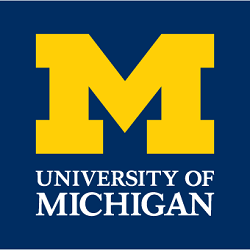Environmental Bioscience courses
University of Michigan - Ann Arbor

Duration : 4 Years
Intake : february,october
IELTS : 6.5
TOEFL : 88
PTE : 0
University Course Details URL : Visit Website
Level : Undergraduate
Tuition & fees : $ 49,350 Per Year
University of Michigan - Ann Arbor Contact Details
1 Pace Plaza, New York, NY, 10038, USA
Email: intlgradadmission@pace.edu
Phone: +18667223338
About Earth And Environmental Sciences (major) in University of Michigan - Ann Arbor
The Earth and Environmental Sciences major trains students to receive a broad foundation in the natural sciences, to understand how the Earth system works, and to tackle grand challenges facing our planet and society such as climate, energy, mineral resources, natural hazards, water, pollution, and sustainability. From our field camp in Wyoming to research on campus and across the world, Michigan students have opportunities to explore the Earth and environmental sciences in engaging ways. The Department of Earth and Environmental Sciences offers:
- an Earth and Environmental Sciences Major
- optional sub-plans within the major: (1) Earth Sciences, (2) Environmental Sciences
- an Honors Plan
- a Teacher's Certificate Program, for prospective science teachers who are candidates for a secondary teaching certificate in earth science and general science; and,
- Academic minors in Earth Sciences, Environmental Geology, Geology, Oceanography, and Paleontology
Students are required to learn material from several core areas representing physical, chemical, and biological aspects of the geosciences. The program also includes a field requirement that takes students off campus to study and apply their knowledge. Within the Earth and Environmental Sciences major students may elect a sub-plan in (1) Earth Sciences or (2) Environmental Sciences. These sub-plans are optional and are designed for students who intend to pursue graduate studies and/or a career in the Earth and environmental sciences. Finally, students are encouraged, but not required, to complete a specialization in a subject area of their choosing. Students in this program of study can earn either a Bachelor of Arts or Bachelor of Science degree. A Bachelor of Science degree requires students complete at least 60 credits in science and math courses.
Academic qualification equivalents
- Applicants must have passed high school
English language requirements
- IELTS :6.5
- TOEFL IBT: 88
University of Michigan Highlights
| Type of University | Public |
| Degree Courses | Over 275 |
| International Students | Around 15% |
| No. of Campuses | 3 |
| English Language Proficiency Test | MELAB/TOEFL/IELTS |
| Official Website | www.umich.edu |
| Employment Rate | Over 95% |
| Location | Ann Arbor, Michigan, US |
| Average SAT range | 1380-1540 |
| The student to faculty ratio | 15:1 |
| Freshman retention rate | 97% |
University of Michigan Cost of Attendance
The budget table may be useful, but the actual cost is entirely dependent on your lifestyle and the path you choose.
Fall/Winter
| Requirements | Undergraduate Students | Graduate Students |
|---|---|---|
| Tuition and Fees | 52,266 USD | 49,548 USD |
| Housing and Meals | 12,034 USD | 16,502 USD |
| Books and Supplies | 1,048 USD | 1,192 USD |
| Personal Expenses | 2,454 USD | 6,574 USD |
| Total Budget | 67,802 USD | 73,816 USD |
Spring/Summer
| Requirements | Undergraduate Students | Graduate Students |
|---|---|---|
| Tuition and Fees | 25,600.19 USD | 24,266.19 USD |
| Housing and Meals | 5,998 USD | 8,213 USD |
| Books and Supplies | 524 USD | 596 USD |
| Personal Expenses | 1,199 USD | 3,287 USD |
| Total Budget | 33,321.19 USD | 36,362.19 USD |
Know more about Studying in USA
| Tuition Fees in USA (1st Year Average) | BE/Btech: USD 28300 | MS: USD 22693 | BBA: USD 26616 | MBA: USD 29558 | BSc: USD 29418 | MA: USD 20452 | MIS: USD 22133 | MFin: USD 37683 | MEng: USD 29558 | MIM: USD 35301 | MEM: USD 23254 | MArch: USD 34741 | MFA: USD 28857 | BHM: USD 27176 |
| Average Accomodation & Food Costs in USA | USD 700 to 1000 Per Month |
| Entrance Exams in USA | TOEFL: 86 | IELTS: 6.5 | PTE: 60 | GRE: 309 | GMAT: 560 | SAT: 1177 |
| Work and Study in USA | Permitted for 20 hours/week with a valid study permit. Know More |
| Post Study Work Permit in USA | One to Two Years after graduation depending on the course. |
| Cost of Student Visa in USA | USD 160 |
| Student Visa in USA | F1 Visa for USA allows you study permit in USA in full time academic courses. Any accredited school, college, university, academic institute, seminary, or conservatory in USA must accept you beforehand to apply for F1 visa in USA. Know More |
| Intakes in USA | There are Three Intakes in USA: Fall (August-September), Spring (January) Know More |
| Top Job Sectors in USA | Health Care, Education, Construction, Hospitality & Tourism, Business Services, Finance. |
| Economy in USA | GDP Growth of 2.1% (Q4 2019), The Larges Economy of the World by Nominal |